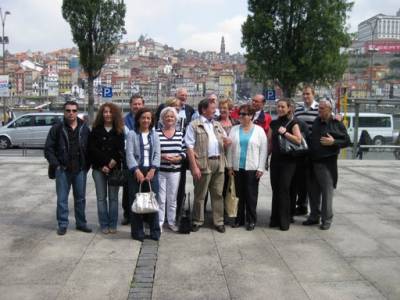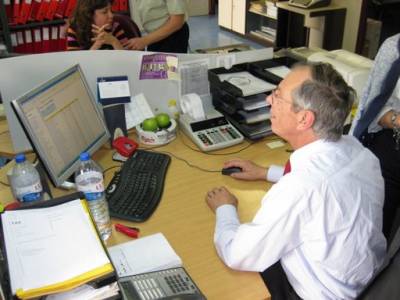The Spanish EU Presidency: Was it worthwhile for ship supply in Spain and Europe?
Eugenio Mediavilla, General Secretary of the Asociación Española de Suministradores MarÃtimos (AESMar), reflects on Spain's European achievements.
As we look back on the 5th Spanish EU Presidency, it becomes evident that it was a remarkably fruitful period for shipsupply in Spain and Europe.
As the curtains draw to a close, the captivating six-month rotating Spanish Presidency of the European Council is reaching its grand finale. A moment of introspection awaits.
In a dazzling display of leadership, Spain took the reins as the President of the Council of the EU for an impressive fifth time, from 1 July to 31 December 2023. During this time, it took on the critical role of orchestrating Council meetings and serving as the Council's ambassador to other influential EU institutions. The role of the Council presidency is like a skilled mediator, ensuring fairness and guiding EU Member States towards fruitful agreements.
A look back to look forward: Spain's significant EU achievements
My country is very experienced with “running the EU”. To go back to where it all started for Spain, we must go back to when the European Union was just a “budding alliance” of twelve countries. It was on 1 January 1989 that the vibrant Spanish Presidency took the helm, ready to steer the EU towards a future filled with promise and collaboration. One of the most remarkable milestones of this Presidency was the groundbreaking move made at the Madrid Summit. There, the decision was made to kickstart the first phase of the Economic and Monetary Union, setting in motion a series of events that would ultimately pave the way for the birth of a shared currency a dozen years later.
In 1995, during the second Spanish Presidency, another of the most outstanding achievements of the European Community project, the Schengen Area, was put into operation in seven Member States, including Spain. Imagine a world where borders are no longer barriers but gateways to adventure and opportunity. This incredible concept, removing internal border controls, has revolutionised how people and goods move across nations. This groundbreaking policy is in full force today, connecting 27 countries in a seamless dance of freedom and connectivity.
In a momentous event that unfolded during this Presidency, specifically at the Madrid European Council in December, a decision of great significance was made. The birth of a new era was marked as the single currency was bestowed with a name that would resonate globally - 'the euro.'
As you can see, Spain significantly contributed to advancing Europe with every Presidency. Was this so in this Presidency, too?
Political tensions
The Spanish Presidency of the Council of the EU couldn't have come at a more challenging time for our country. In the scorching heat of July, our nation held its breath as the general elections unfolded. The anticipation was palpable, but alas, the results left us in a state of bewilderment. Like a puzzle missing its final piece, the presidential candidate remained elusive, shrouding our uncertain future. Will the existing progressive coalition rise from the ashes, albeit fractured? Or shall we brace ourselves for the thrilling possibility of an electoral encore? Only time will unveil the political drama that lies ahead.
There's no denying that this air of uncertainty profoundly impacts decision-making and the bustling world of economic activity. In a world where political instability reigns, the potential consequences are far-reaching. One such consequence is the potential for a significant slowdown in investment projects and the creation of new jobs. This additional brake on progress could profoundly impact the economy, leaving us to ponder the uncertain future that lies ahead.
The Spanish Presidency and EU Ship Supply
During this period of uncertainty, the programme of the Presidency had, nonetheless, to be delivered.
The Spanish Government had set its sights on four key priorities during its Presidency, two of which are very important regarding the ship supply industry.
First, to reindustrialise the European Union and secure its open strategic autonomy. This included fostering the growth of strategic industries and cutting-edge technologies in Europe. The goal was to expand and diversify trade relations while fortifying supply chains. An example was the EU-CELAC Summit, bringing together the best of Europe, Latin America, and the Caribbean in a spectacular display of collaboration and innovation and embarking on a journey of future cooperation. In ship supply, we are all about partnership and depend on good neighbourly relations with as many parts of the world as possible. This is because ship supply is a global business and is teamwork. We need the EU to promote our values and open trade doors that are otherwise closed so we can build a robust, interconnected and global ship supply business. Spain has a keen affiliation with Latin and South America, so it is only fitting that this is a highlight of the Spanish Presidency of the EU.
We are, secondly, pioneering a sustainable future through ecological transition and environmental adaptation. For Spain, the quest to combat climate change and protect the environment is not just a mere responsibility and a cost factor. Time and time again during this Presidency, we are told that the race to net zero is also an extraordinary chance waiting to be seized. In Spain and Europe, ship suppliers support and advocate for a just ecological transition to net zero. We know that all sectors, including ours, need to be a part of the solution, and we are already making significant changes. The best proof of OCEAN is our new sustainability working group, which will explore the critical policy and regulatory challenges and allow us to discuss best practices in adapting our business.
There were other highlights which matter to ship supply:
In October, a high-level seminar of the EU customs directors-general in Madrid was held. We followed this carefully as the EU is embarking on the most significant reform of the EU Customs Union since 1968, and we are directly concerned.
The Spanish Presidency of the EU Council also coincides with the entry into operation of the CBAM legislation – the Carbon Border Adjustment Mechanism, imposing reporting requirements on EU importers of certain carbon-intensive products. We are evaluating the impact of this for ship suppliers in our working group – but make no mistake. An effect it will have!
In Spain, we are always up for a European adventure! Spain was proud to take the reins as the President of the Council of the EU, following in the footsteps of Sweden. But hold on tight because this is just the beginning of a thrilling journey. After Spain, the baton will be passed to Belgium in 2024, promising a dynamic and diverse leadership. So, buckle up and prepare for a whirlwind of European collaboration and exciting developments until the end of the year and into the next.
Eugenio Mediavilla
Secretary of the Spanish Ship Suppliers Association





